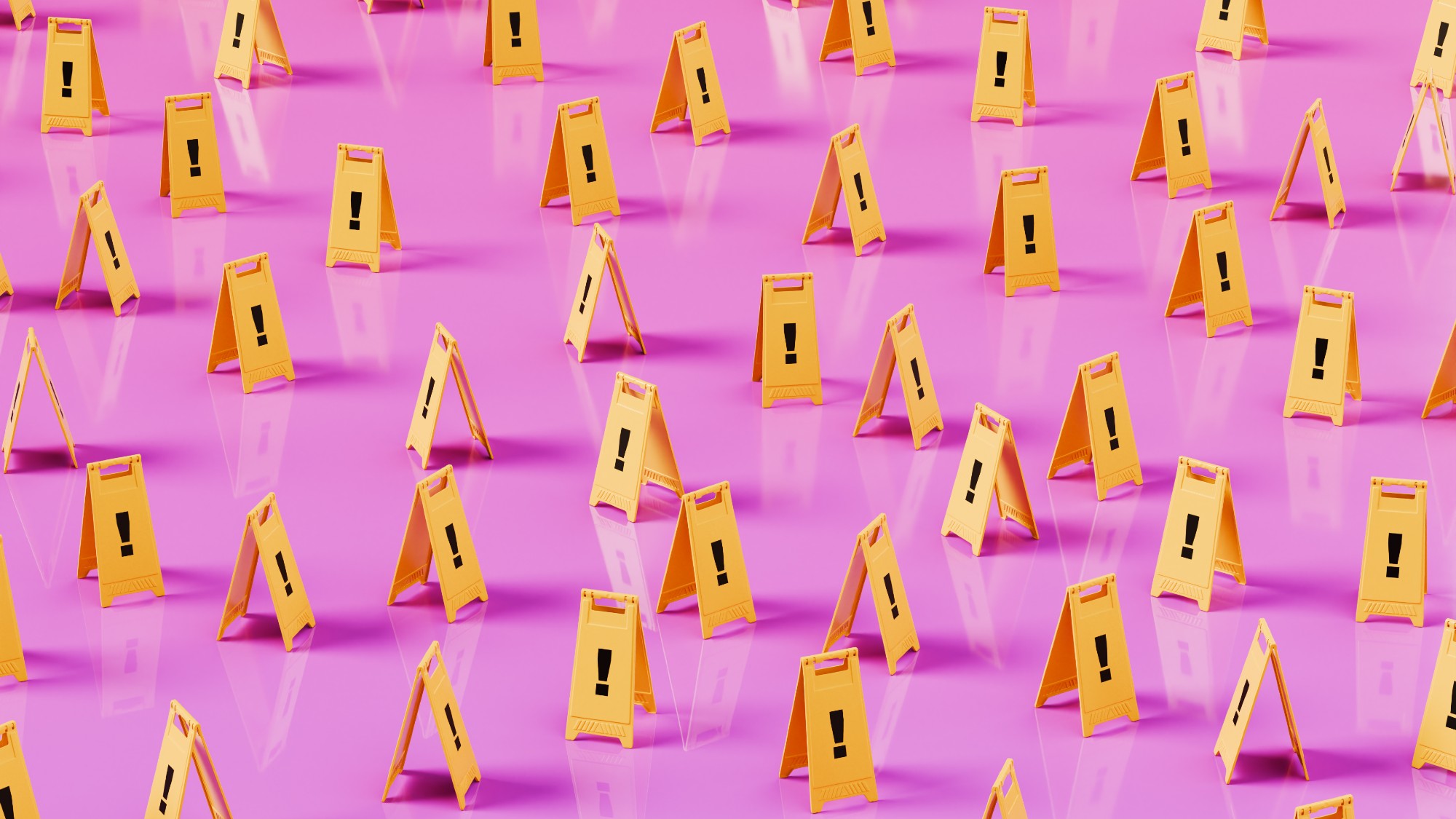To the point: the gender divide over exclamation marks
‘Men harbouring urges to be more exclamative’ can finally take a breath – this is what using the punctuation really conveys

A free daily email with the biggest news stories of the day – and the best features from TheWeek.com
You are now subscribed
Your newsletter sign-up was successful
Shocking! Women use exclamation marks three times more often than men, according to a new study.
Punctuation is a “fraught and contentious business”, said Melanie McDonagh in London’s The Standard. The study, due to be published in November in the Journal of Experimental Social Psychology, delves into the gender divide plaguing exclamation marks – the current “battleground” in the world of punctuation.
Exclamation marks have been found to convey a sender’s warmth and enthusiasm, but also lead to a perceived lack of power or an inability to think analytically. “That’s a particular gender stereotype you don’t want to play into,” said McDonagh.
The Week
Escape your echo chamber. Get the facts behind the news, plus analysis from multiple perspectives.

Sign up for The Week's Free Newsletters
From our morning news briefing to a weekly Good News Newsletter, get the best of The Week delivered directly to your inbox.
From our morning news briefing to a weekly Good News Newsletter, get the best of The Week delivered directly to your inbox.
‘A grammatical whoopee cushion’
Ultimately, exclamation marks are “suggestive of a bright smile” and a “non-confrontational stance” – a staunch “willingness not to seem bossy even if you are being bossy. I have to stop myself from using them all the time.”
This urge to exclaim is often because of fears women hold about how their language could make them look to others, said Cheryl Wakslak, co-author of the study.
Often backfiring instead, exclamation marks “suggest that the user is desperate to seem nice” and is tip-toeing to avoid offence. At the end of the day, your message itself should probably convey kindness “without an exclamation mark taking the sting out of it”, said McDonagh. “As for emojis, don’t get me started.”
Overusing exclamation marks is “irritating and moronic” and, according to F. Scott Fitzgerald, “like laughing at your own joke”, said Carol Midgley in The Times. It’s like admitting that you’re not funny and you need the punctuation to “signpost your jocularity with a grammatical whoopee cushion”.
A free daily email with the biggest news stories of the day – and the best features from TheWeek.com
“Like many women I live in terror of seeming slightly brusque, causing offence”, or, perhaps worst of all, “not being liked”. This could well explain why there’s now a “contagion of exclamation marks everywhere”, even in sympathy notes – something akin to “offering your condolences while wearing clown shoes”.
‘Female exclaimers need not worry’
At one point, “I shunned the things”, especially when writing in the workplace, said Pilita Clark in the Financial Times. But over time, exclamation marks wormed their way back in, whether due to the “informality that social media ushered in” or the pandemic, “which seemed to intensify said informality”. But now I wonder whether I started using them more “for another, more dubious reason” – was it because male colleagues were starting to catch on and do the same?
Now, “the big news from the research" is that regardless of your gender, “you can probably relax”. The perception of fewer analytical thinking skills or less power “doubtless matters” if you work for a London law firm, but “the research shows you will not be deemed less competent”. And you’ll be seen as warmer and more likeable to boot. That means “female explainers need not worry about being judged more harshly than any male counterpart” and “men harbouring urges to be more exclamative should feel free to submit”.
Because much of our communication now occurs online, “punctuation’s job description has gotten more demanding”, said Time. Without facial cues or gestures, it has to do quite a lot of heavy lifting, needing to make clear “not only what you’re trying to say, but how you’re trying to say it”.
And exclamation marks aren’t the only ones to have shifted – research suggests that “omitting periods is a way people communicate that they’re feeling relaxed”, while sentences that end in full stops are seen as less sincere than those without.
Ultimately, whether you use loads of punctuation or not, “everyone benefits from frankness and open discussion around punctuation”.